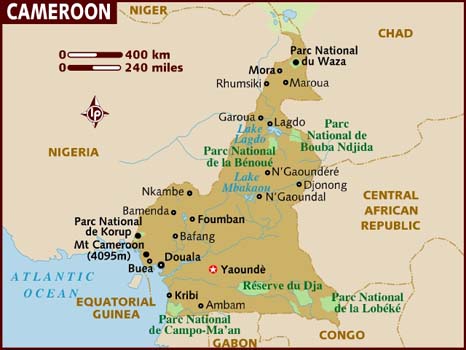Cameroon economy hard hit by anglophone unrest, jihadist attacks

Agency
October 05, 2018

YAOUNDÉ – In theory Cameroon's economy has a lot to recommend it: a wealth of commodities such as oil, diamonds and gold, and good agricultural conditions.
But as 85-year-old Paul Biya seeks a seventh term in office in Sunday's presidential election, the economic outlook is far from rosy.
In reality businesses are shutting down and unemployment is shooting up in the country's restive anglophone regions, while there is chronic underdevelopment in the north where Boko Haram attacks are common.
Coffee and cocoa are key economic mainstays of the country's two English-speaking regions. Seventy-five percent of Cameroon's arabica coffee comes from the anglophone northwest.
Last month the country's employers' group GICAM estimated that exports for both crops were down 20 percent, blaming the insecurity and the displacement of people escaping the unrest.
Fighting has become a daily occurrence in both anglophone regions since late 2017 when separatists issued a symbolic declaration of "independence" from mainly francophone Cameroon.
The flag of the self-styled Republic of Ambazonia replaced the Cameroonian colours in a number of villages in the anglophone region.
There are now more than 1,000 separatist fighters who control "a significant proportion of rural areas and main roads", according to the International Crisis Group.
Their attacks are often aimed at symbols of state power, but francophone businesses and foreigners deemed supportive of the central power have also been targeted. At least 10 business heads and employees have been kidnapped. Others were killed outright.
- Long-term consequences -
Faced with the threat of attacks on employees, vandalised premises, torched workers' housing and stolen vehicles, many companies have shut up shop.
According to the Human is Right NGO, based in Buea in the country's southwest, at the heart of the nascent insurgency, unemployment has soared to 70 percent in the agricultural sector.
The Cameroon Development Corporation (CDC), one of the country's biggest employers, has also had to take evasive action in the anglophone zone.
Only seven of its 29 production sites are still fully operational, according to GICAM. "Everything is shut down, the schools, the businesses. This is a town without life in it," complained one resident of Buea, which used to be one of Cameroon's economic hubs.
The army and the separatists clash on a daily basis in the suburbs. Shots can be heard on a regular basis inside the university, the main seat of learning in Cameroon's English-speaking areas.
"This crisis is going to have long-term consequences," a humanitarian worker said. Short-term consequences include the "serious disruption" of the communications network, according to GICAM. If the pylons haven't already been destroyed by the separatists then maintenance has been made impossible by the insecurity.
In an area which is in any case very rural, "there is no more access to the outside world," the Buea resident bemoaned.
"It's drastic for the economy and for the future of the population. they are leaving, the businesses have closed, the fighting's going on -- what kind of future do we have?"
A total of 246,000 people have fled their homes in the southwest and 25,000 have left the country altogether for Nigeria, according to UN figures.
- Heightened poverty -
Meanwhile, in the Far North region, Boko Haram jihadist fighters have been launching attacks since 2014, killing 2,000 civilians and soldiers and kidnapping about 1,000 people, according to the International Crisis Group.
A militant movement that reviles Western influence and seeks to impose an Islamic state based on sharia law, Boko Haram has caused the deaths of at least 20,000 people since taking up arms in Nigeria in 2009.
The main tools to fight them there include encouragement to desert, and the use of around 14,000 vigilantes to provide intelligence for the security forces and protection for villages.
The economic impact here is of a different kind. Even before the arrival of Boko Haram the region was the poorest in Cameroon.
Unlike the formerly vibrant anglophone regions, the Far North was suffering from stunted development. The attacks have heightened the poverty in the region.
"I had my field in Djakana, but I had to flee because of Boko Haram," said Ali, a resident who has moved from the countryside into the town of Mora.
resident Biya, during a visit to the Far North capital Maroua on Saturday, stressed his wish to reconstruct the region.
He promised major projects, including oil exploration, a railway to neighbouring Chad and initiatives to bring back the tourists who have avoided the area since the arrival of the jihadists.
---


Leave Comment